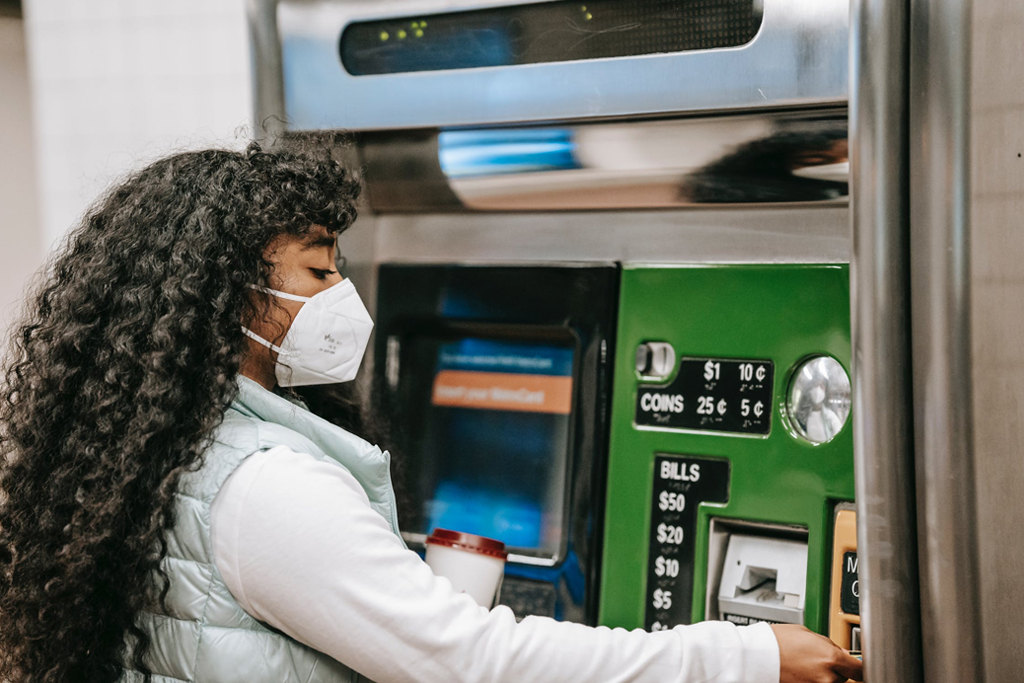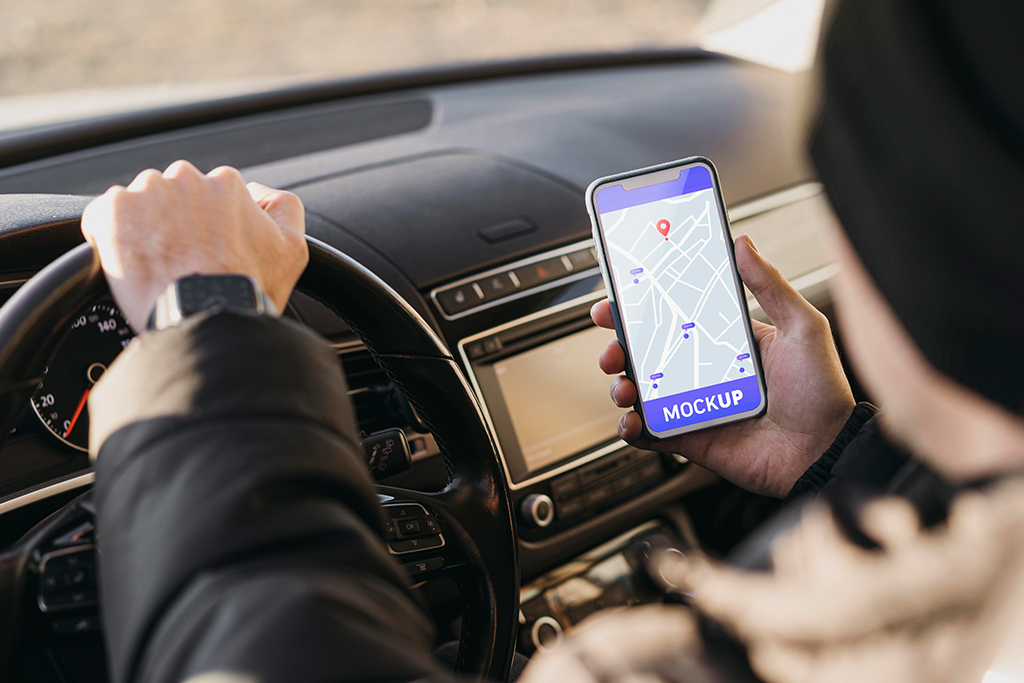
How Is The Bus Reservation System Changing The Mobility Game In African Countries?
Transport is the backbone of every country. The more efficient the transport is the more potent the country’s economy would be. Africa may have had a sleepy start but the economy of this beautiful continent is all set to grow and how! If studies are to be believed – Africa’s combined GDP is set to reach $29 trillion by the year 2050. The growth is accredited to growing sales, manufacturing and agriculture. Rapid industrialization and growth of urban cities has brought in a need to have an organized, efficient transportation system, particularly the one that allows seamless transfer of people within the city and inter-city. Bus reservation system is one such example that shows how the transportation system is getting digitized in the major African cities.
Due to the continent’s low rates of car ownership: 30 to 70 vehicles per 1,000 people (according to a 2011 survey of Kampala, Lagos, and Douala) a large population of Africa is still dependent on public transport for their daily commutation needs. The geographical enormity of the continent is such that a daily commute to the workplace takes up a considerable amount of time. Various countries across the African continent are now focusing on adapting to modern ways of improving the dreadful traffic and ultimately reduce the time spent by commuters travelling to and from work. Thanks to the technological advancement this process can be simplified and delivered.
Amongst the possible solutions namely Iki, a Bus reservation system too is the part of the solution. It automates the online ticket purchasing through a convenient booking system, and also helps manage client data, reservations and booking details. The obsolete method of bus travel that involved long, endless queues at the ticket counter, manual maintenance of records is no longer attractive or practical.
If you are a bus operator or into fleet management, you can use the Bus reservation system to connect to thousands of operators and routes under one central reservation system. It also helps you maintain client records, drivers’ data and other records which we are going to talk about in the later half of the write-up.
What is Bus Reservation System?
The bus reservation system automates online seat booking or ticket purchasing with an easy-to-use online bus booking system. It helps bus businesses optimize bus routes. Moreover, an efficient bus ticket reservation system allows businesses to:
A. Strategize, schedule, and manage multiple routes with start, end, and stop destinations
B. Prepare a route timetable
C. Create seat & passenger lists
D. Print bus schedules
How Public Transport of Africa Can Be Benefitted From a Bus Reservation System
While looking to revamp its transportation system, quite a few African cities have opted for the modern Bus Rapid Transit since 2008. However any such practice remains incomplete without a proper reservation system in place. Bus reservation system’s main objective is to facilitate work efficiency, accuracy, and feasibility and do so while remaining safe and reliable.
A bus reservation system software is particularly helpful for bus operators/ aggregators as it helps them manage multiple headaches like – bookings, fare management, online payments and refunds in the most efficient manner.
Let’s dig into quickly why bus reservation system is beneficial –
1. Easy Reservations
Forget long queues, forget disappointments, forget half-baked information about bus routes, bus numbers and seat availability. The bus reservation system allows you to book your desired seat and your desired date and time from the comfort of your home. In case of non-availability you are informed then and there so that you can have a backup plan ready.
2. Easy searches, schedules, fares, availability
An online bus reservation system allows you to search for bus routes, know the bus schedules, compare the fares and check for seat availability in a quick and efficient way. This makes it very convenient for anyone who is looking to plan ahead or is a frequent user of a bus to commute.
3. Ticket cancellation
No more haggling on prices and waiting endlessly for the refunds. The online bus reservation system allows you to cancel/book your ticket and transfers funds into your account within stipulated working days. And, because the transaction is online you can always keep a track of it.
4. View, print, download tickets
If you suffer from panicky memory loss like me, you must have suffered the embarrassment of losing a ticket, or say forgetting the bus timings. But, with a bus reservation system, you have it all under control. You can view, download or even print (though I would like you to save paper) your tickets in a jiffy and whenever required. The ticket is available in your account for a longest period of time so you can access it as many times as you would like. (Psst! I usually do it to claim my travel expenses, cool right?)
5. Instant Email & SMS notification
Once you book your ticket, you get an instant notification on your mobile phone (SMS) as well an email confirming your transaction. You may also get reminder emails and/or SMS reminding you of your impending journey. These are complete on-demand communication, if you don’t like to be bothered, you also have a chance to opt out of any such communication.
6. Saves time and money
Booking your ticket online saves you a lot of time and money as you no longer have to go to a ticket counter and get your business done. The online tickets are commission free and a lot of them offer healthy discounts saving you a good amount of money. Another attractive thing is you can book the tickets at your own will and pace, 24X7. There are no restrictions in terms of timings.
Related read: Bus Ticket Booking App Development- All You Need To Know!
Must-have features of a bus reservation system
A bus reservation system has to be as user-friendly as possible. There are no two bones about it. Your app or web solution should be designed in a way that even the basic operator should be able to interact with it and use it with a little guidance. You can load your app with 100s of features but do not forget to include key features like ones mentioned below –
1. Payment Gateway
An ideal bus reservation system should have multiple payment options. Online as well as offline. The online payment should be secured and partnered with reliable payment gateways as it carries sensitive information customer data.
2. Online Seat Selection
One of the beauty of online bus booking systems is that it allows me to select my seat, so if I want a window seat and it is available I can straight away book it. While booking my seat I can also see empty seats, and seat allotment with an interactive bus map.
3. Multi-currency
The bus reservation system should allow usage of multiple currency, this is especially helpful if you live in a touristy African city and expect a lot of the passengers to use your transport services.
4. Email & SMS Notifications
Didn’t I tell you how forgetful I am? Especially in the mornings when I have a dozen things running in my mind, won’t it be wonderful if I have my travel related information handy on email and SMS, so that I can produce it whenever I need them.
Related read: How to create an AI driven School Bus Tracking System
5. Interactive Bus routes
Integrate the bus reservation system with a map so that it can show and store multiple bus routes, to and fro destination details, bus timings and distance, and various schedules.
6. Dedicated Drivers’ App
Having a dedicated Drivers’ app will let your drivers have direct access to information about customers’ pick-up and drop-off points along the route. The app will also help them with proper management of customer ticketing, allocation of empty seats and booking confirmation.
7. Fares & Tickets
The times are dynamic and fares are not so direct. A bus reservation system should help you with management of Fares and have a transparent ticketing system so that goof-up and customer disappointments are minimal.
8. Booking Report Details
For an efficient fleet management, and analysis of profitable routes, a bus business operator should be armed with daily business reports details like percentage of empty seats, route details, daily bookings and so on.
9. Get real time tracking of the vehicle
![]()
If you ask me, both real time availability and real time tracking are important features of a bus reservation system and should not be missed out on. The “real time availability” allows you to broadcast empty seats to the distribution network at any given time. This helps a bus operator avoid the risk of overbooking and/or underbooking. Also, a “real-time GPS tracking system” allows improved transport operating efficiency, it boosts customer safety, and helps in optimizing the costs.
10. Scalable and Customizable
An ideal bus reservation system should be scalable and customizable. As a bus business operator I have a certain budget and need certain features that are non-negotiable – the bus reservation system should be able to accommodate this and allow me to further scale them in future.
Related read: How to scale your car-sharing and delivery business?
Launch Your Bus Reservation System App With AllRide
It is not only the traffic congestion that is a worry, Africa also has the highest number of road traffic accidents per capita. According to a report from the University of Michigan, the likelihood of dying in a road accident in several African countries is almost twice as high as dying from cancer, heart disease, or stroke.
Needless to say, short-term and long-term transport solutions are needed across Africa. Urban African cities looking to ease transportation woes should invest in a robust bus reservation system to smoothen out the process.
A well-thought bus reservation system is a win-win for everyone involved. It helps customers, the operators and will ultimately help Africa scale its transportation game to another level.
Want to automate your bus reservation business by giving it the power of digitization? Connect with Allride Bus Booking experts to get a mind-blowing bus reservation system app.
















